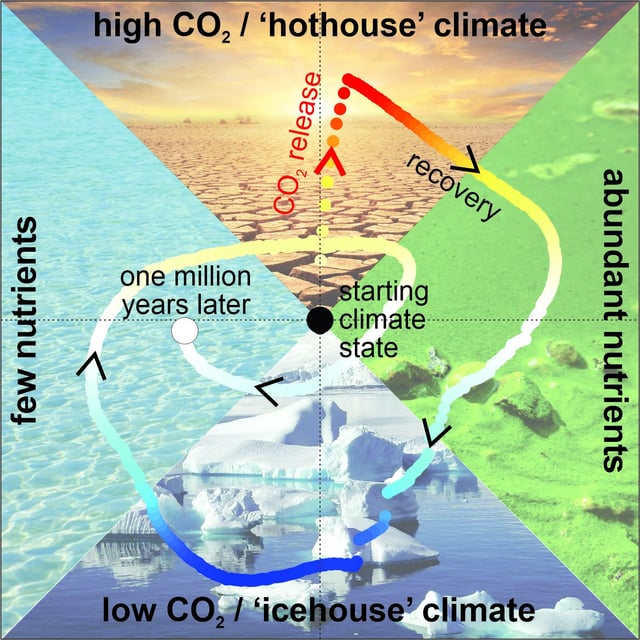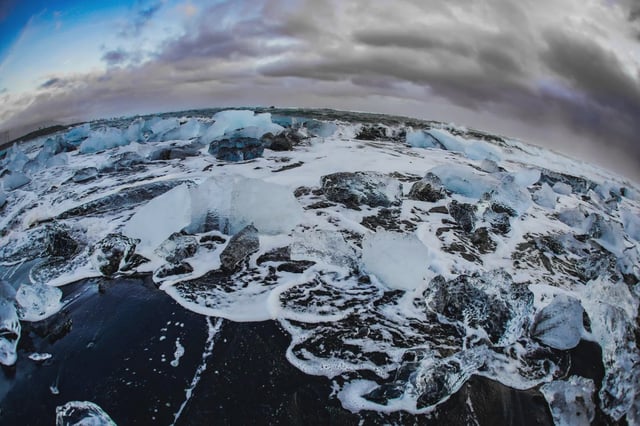Overview
- UC Riverside scientists report in Science that a coupled ocean–carbon model reveals an unstable nutrient–plankton–oxygen feedback.
- In simulations, warming boosts phosphorus delivery, fuels plankton blooms, drives deoxygenation, recycles nutrients, and accelerates carbon burial.
- The modeled feedback produces a cooling overshoot that can push temperatures below the starting state and, in some runs, into ice‑age conditions.
- The magnitude of the overshoot depends strongly on atmospheric oxygen, with lower past oxygen consistent with extreme Snowball Earth episodes.
- With today’s higher oxygen, the effect is muted and plays out over tens to hundreds of thousands of years, so researchers urge rapid emissions cuts now.

